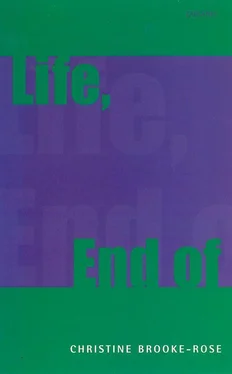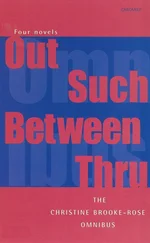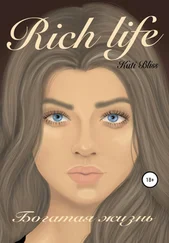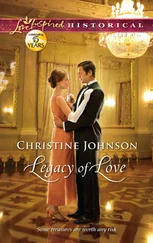Christine Brooke-Rose - Life, End of
Здесь есть возможность читать онлайн «Christine Brooke-Rose - Life, End of» весь текст электронной книги совершенно бесплатно (целиком полную версию без сокращений). В некоторых случаях можно слушать аудио, скачать через торрент в формате fb2 и присутствует краткое содержание. Год выпуска: 2012, ISBN: 2012, Издательство: Carcanet Press Ltd., Жанр: Современная проза, на английском языке. Описание произведения, (предисловие) а так же отзывы посетителей доступны на портале библиотеки ЛибКат.
- Название:Life, End of
- Автор:
- Издательство:Carcanet Press Ltd.
- Жанр:
- Год:2012
- ISBN:9781847775726
- Рейтинг книги:5 / 5. Голосов: 1
-
Избранное:Добавить в избранное
- Отзывы:
-
Ваша оценка:
- 100
- 1
- 2
- 3
- 4
- 5
Life, End of: краткое содержание, описание и аннотация
Предлагаем к чтению аннотацию, описание, краткое содержание или предисловие (зависит от того, что написал сам автор книги «Life, End of»). Если вы не нашли необходимую информацию о книге — напишите в комментариях, мы постараемся отыскать её.
by a master of experimental novels finds the author reflecting on her old age and its effects on her writing. As she reflects on her own career, her experiments with narrative, and on the narrative she writes here, she ultimately reasserts herself and accepts the life behind her.
Life, End of — читать онлайн бесплатно полную книгу (весь текст) целиком
Ниже представлен текст книги, разбитый по страницам. Система сохранения места последней прочитанной страницы, позволяет с удобством читать онлайн бесплатно книгу «Life, End of», без необходимости каждый раз заново искать на чём Вы остановились. Поставьте закладку, и сможете в любой момент перейти на страницу, на которой закончили чтение.
Интервал:
Закладка:
You must walk, says the physiotherapist, for your legs. Of course, walking is a joy. But slowly the rest of the body prevents it, with flailing anginal pains and breathlessness, demanding sit-downs on low walls or electricity meters, first at the end of the walk, shorter and shorter, now even before leaving. Just moving from one room to another, from the bed to the bathroom, the bathroom to the revolving armchair, the armchair to the kitchen, the kitchen back to the table or preferably the armchair with a tray held between hand and bosom to keep the other hand for support from passing walls and slow-flowing furniture. And sometimes not so. Sometimes the whole tray clatters, shatters to the floor (the earth the universe). Then comes the collapse into the revolving armchair in order not to crouch, and the picking up of the food, the broken plate and glass. For the hardest is the rising after crouching. Hence the resurrection myths, all gods rise so easily. Whereas the rising of the human blood pressure signals a fall. Did Eve have high blood pressure?
Objects also have trouble being picked up.
You mustn’t fall, says the doctor, on account of anti-coag. treatment, yet not thinking of the flinching legs. The doctor knows all the six ailments but can’t do much to make them go away, as doctors can and do when patients are younger: cure versus maintenance. Maintenance for what?
The vicious circles are endless.
Do this for that ailment but another prevents it.
And the astonished surprise, when the doctor, after three months of violent nauseas in the morning, gives a medicine that actually cures them. Presumably to avoid the birth of a very elderly baby.
So life becomes a gradual learning of new physical impossibilities and a slow reorganisation of every daily movement around them. The shrinking of all activity to such movements is step by step accepted, as is the swift dismantling of a lifetime’s independence. The small activities left become trebly precious. And astonishingly those ailments are not accompanied by clinical depression. Serenity remains. All the more so for joyful solitude. Closing in on oneself, it’s called, and foolish, wicked, unhealthy, weak-minded, self-centred. But how to avoid that if others do the enclosing? That withdrawal is then the last tiny freedom, the last small piece of autonomy.
For the biggest problem, as one study of the disabled says, is not the handicap — here the growing lameness and the pounding Vasco the Harmer, constant pain, the constant falls during the constant low-grade work of the pining Ceres in the hindbrain, pining for Proserpine. The biggest problem is Other People.
And the body, though it may cause laughter, has no sense of humour of its own, no small sparks of slow but planetary motion, no fleeting stars of word-play, only the mind has those. But then, what is the mind but body, the corn-goddess at war with the gleaning cerebroom that sweeps up for a little peace and order and doubtful cleanliness. The mind without the body couldn’t laugh nor murmur nor shriek nor have tears in the eyes. It couldn’t play nor run nor stumble with words, it couldn’t read.
The body has disabilities but so has the mind. Here pain, mere burning or falling or shattering are trivial compared to blindness, deafness or the slow swift murder of neuronic cells in the memory. Not to mention famine poverty torture landmine legloss suicide bombs and demolitions from O.P., from the world, the universe, that is to say from man. Mere diswalking and disstanding may create some unknown presence or other to thank for the retained use of eyes, even if merely confronted with instant alien war in ultra-green, or is it infra, like the hypothalamus? Well in fact it can’t be either since green comes in the middle of the spectrum and can’t jump beyond the ends. It doesn’t look like emerald green or leaf green or go-green or pea-green or ecologreen. Or envy-green. Or Big Apple-green. More like death-green. While the blind may thank that same presence for the use of legs. It is the brain, it is the brain endures, yet even the pain from that misquote of Empson floods the mind. Which also shrinks and dies. As Eve falls.
The immediate environment always shrinks, from house to flat to room to bed to coffin to earthworm-tums then grows again to compost to earth to planet to universe.
Even languages die, like species, thousands per century. All those colonised people lose theirs to the stronger power, while those overlooked by the colonisers shrink back through isolation into a tribe, a clan, a family. Whichever is our own language we can hear the grammatical and phonetic changes, the lapse that may grow into an unimagined transformation during one lifetime, but can we spot the slow death-symptoms?
It is the brain, it is the brain endures.
But is it? Or the pillars of fire? All these streaking snippets of facts occur only because of long familiarity, long love of language and its bones and flesh, and how it grows from Primitive Human to Old High Human to Middle High Human to Modern Low Inhuman. The world in other words. Nobody else is interested.
And now, in any case, new information, from the still retained and enjoyed passion for reading, is quickly lost. So are proper names, even of well-known politicians, reporters, writers, sudden black holes although the names of stars familiar and loved from youth are remembered, and pang slightly when they die, after a longish spell of vanishment so as not to advertise their old age. And holes for what has just been seen, the original place of a word in a huge puzzle after looking up to think, or the reason for grindingly moving into one room from another, to fetch what, a black hole. The only access now to the world, the universe, is made through bits and pieces, clung to as small heroes battling against withdrawal.
A scientist on some learning programme says black holes can hide renewed creativity.
Painfully jerking, like a babe learning to walk, stagger, jerk, plonk, old age a mirror of childhood but childhood not for one second reflected in the present-bound, floor-bound eyes. The child trips towards its mother, the old towards Mother Nature, looking into a glass darkly.
2
But who is O.P.?
The measurer of blood pressure is fixed on the wall behind the patient.
How much, Doctor?
Very high.
Yes, but how much?
Very high.
She smiles a purse-lipped smile. Very high.
Doctor, come off it. You yourself told me to buy an instrument and I can take my blood pressure ten times a day, if mad enough.
She sees the point. And tells.
She is young, slim and pretty, with two protruding teeth, for cussedness perhaps. But she is conscientious. To an ignorant but intelligent patient she seems to make quite a few diagnostic errors. And whatever her medical qualities she has a real communication problem, almost worthy of Molière’s satire: don’t tell the patient. Even though it’s long been recognised that if the patient understands what’s going on in his body that’s often half the therapy. This seems to be her first practice. She has come here from Ambulance Urgencies, someone in the village says. If true, and despite tele-series, a doctor in urgencies does not inform, but reassures.
Her voice is indeed soothing, so that the atmosphere remains smooth and smiling.
May I ask you, why did you cancel the Vitamin B12 leaving only the B1 and B6? You said Vitamin B is the only treatment for polyneuritis of the legs, well, yes I know, not to cure but to keep hold. (For what? Silently.)
It’s temporary.
What do you mean, temporary?
Temporary means provisional.
New burst of laughter.
Thank you doctor. I mean, of course, what do you mean medically, in this particular instance?
Читать дальшеИнтервал:
Закладка:
Похожие книги на «Life, End of»
Представляем Вашему вниманию похожие книги на «Life, End of» списком для выбора. Мы отобрали схожую по названию и смыслу литературу в надежде предоставить читателям больше вариантов отыскать новые, интересные, ещё непрочитанные произведения.
Обсуждение, отзывы о книге «Life, End of» и просто собственные мнения читателей. Оставьте ваши комментарии, напишите, что Вы думаете о произведении, его смысле или главных героях. Укажите что конкретно понравилось, а что нет, и почему Вы так считаете.












